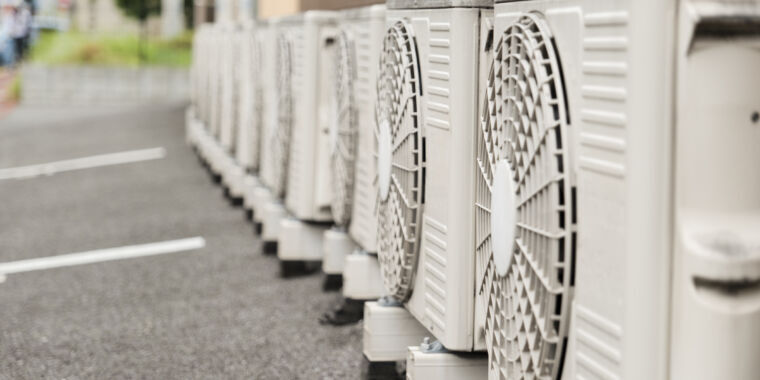I’m pretty sure it’s already too late. They had their chance to change, but they chose instead to focus their time, money, and resources on campaigns to program people that it wasn’t happening.
Was it ever not too late? We still haven’t arrived a a point where we aren’t making things worse. I just don’t think even if the countries that could have implemented positive changes we would have just delayed the inevitable.
We can cool spaces using evaporation and not HVAC. But that takes water, why aren’t the old methods of basic thermal dynamics not in play? What about geothermal cooling/heating? So many lower energy cost alternatives to get the temps down in your domicile
The Gulf Stream, which currently keeps Europe warmer than it should be, could be disrupted by sudden dumping of cold fresh water from Greenland. As I understand it, the fresh water is lighter than salt water and will essentially disrupt the Gulf Stream. Previously, It was believed that if the Gulf Stream were disrupted, Europe would plunge back into the temperatures that you see at the same latitudes in North America. The equivalent latitude for Belgium would be Winnipeg, which has exceptionally cold winters.
Now, you would think perhaps this would then balance out. The problem is that the Gulf Stream dissipates heat from the equator into the northern latitudes. Heat is what drives hurricanes. With nothing dissipating heat from the equator, you have an enormous, essentially battery, to power more frequent and larger hurricanes. Now before you start saying goodbye to Florida, consider that hurricanes ride along on the Gulf Stream. With it disrupted, where are those hurricanes going to go?
This is why weather modeling is so difficult. There are way too many variables to have to account for. Go ahead, try to make a prediction for more than two-three weeks.
This is terrifying
Is it? Why? Houses in Europe are still built to withstand heavy winters
Yeah but the food supply may not.
Where does this idea come from? European agriculture is much more resilient to cold than it is to heat, as it has historically developed to withstand harsh winters.
If they can withstand heavy winters they can also withstand heavy summers. Insulation is awesome that way. I’ve kept my well-insulated house cool by shutting the triple glazed windows and the blinds during the day and opening everything at night. And that wasn’t just one day, it was hot (35-37C) for weeks. Although we were lucky that it wasn’t hot at night, like it was in Australia.
Great, climate wars
Us DOD has drawn up plans for what to do in the next probable wars based upon various causes. One of those causes is lack of water.
Europe may have to accept air conditioning as a necessity. At the moment even in southern Europe it isn’t typically considered one. Sometimes it is even viewed with some hostility.







